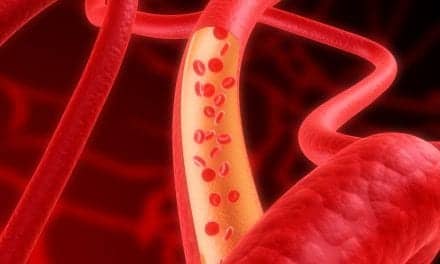A British study finds that exacerbation severity in patients with chronic obstructive pulmonary disease (COPD) can be reliably assessed with the COPD Assessment Test™ (CAT). The findings appear in the American Thoracic Society’s American Journal of Respiratory and Critical Care Medicine.
The CAT questionnaire assess cough, phlegm, chest tightness, breathlessness, activity limitations, sleep, and energy levels. As there is currently no widely accepted standardized method for assessing exacerbation severity in COPD patients, the inclusion of CAT scores into the assessment of COPD patients could provide such a standardized method, according to the researchers.
The study enrolled 161 COPD patients who completed the eight-item CAT questionnaire at least once under supervision at a clinic. The CAT was also completed by 75 patients during 152 treated COPD exacerbations.
Frequent exacerbators (≥2 exacerbations per year) had significantly higher baseline CAT scores than infrequent exacerbators. CAT scores in the 152 exacerbations assessed rose significantly from an average baseline value of 19.4±6.8 to a value of 24.1±7.3 at exacerbation. Change in CAT score from baseline to exacerbation onset was weakly but significantly related to change in CRP but not to change in fibrinogen. Rises in CAT score at exacerbation were significantly associated with falls in forced expiratory volume in one second (FEV1). Median recovery time, as determined using symptom diary cards, was significantly related to the time needed for CAT scores to return to baseline.
"In our patients with COPD, CAT scores reflected exacerbation severity, as measured by both exacerbation length and reduction in lung function," said Alex J. Mackay, MBBS, MRCP, clinical research fellow in the academic unit of respiratory medicine at University College London. "CAT scores at exacerbation were also weakly related to systemic inflammatory markers and were elevated in stable patients with a history of frequent exacerbations. Our results indicate that the CAT can be used as a score of the multi-dimensional nature of COPD exacerbation severity."
"The CAT is validated, free, and easy to administer, and can be easily incorporated into the usual care of patients with COPD at no additional cost," concluded Mackay. "It may also be useful in clinical trials as an objective measure of new interventions aimed at reducing exacerbation severity. Since our results indicate that CAT scores may reflect levels of systemic inflammatory markers, albeit weakly, this finding may have particular relevance in clinical trials of anti-inflammatory therapeutic agents in COPD."
Source: American Thoracic Society









